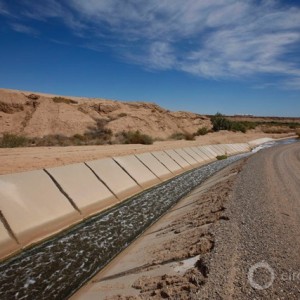The Stream, April 9: Half of India’s Rivers Are Polluted
The Global Rundown |
Sewage has turned half of India‘s rivers into a mess, and water used at Fukushima is turning into a cumbersome storage problem for Japan. Thailand‘s second rice harvest is its smallest in 15 years, and Baltimore is 1/40th of the way to collecting all it is owed in past due water bills.
“In view of population increase, demand for freshwater for all uses will be unmanageable.” — Quote from a government report on India’s polluted rivers. (Guardian)
By The Numbers |
15 years – Time since Thailand’s second rice harvest was as small as this year’s, or water levels in reservoirs were so low. The government cut water supplies for the second harvest to preserve for the main crop, planted in May. Bloomberg
$US 1 million – What the city of Baltimore has collected in unpaid water bills since starting an initiative to deal with $40 million in past due accounts. The city has assistance programs available to help customers pay their bills, and turn-off notices were sent to 25,000. Customer disconnections began this week. Baltimore Sun
Science, Studies, And Reports |
Half of India’s rivers are polluted, a new report by India’s central pollution control board (CPCB) found. The number of polluted rivers in the last 5 years has more than doubled from 121 to 275, and the primary cause is discharge of sewage. The polluted state of the country’s water will make meeting the freshwater demands of a growing population of 1.2 billion tougher, with report authors calling the situation “unmanageable”. Guardian
On The Radar |
Japan is looking at new options for dealing with hundreds of thousands of tonnes of water from the Fukushima nuclear plant. The water contains tritium, which is a relatively harmless radioactive isotope present even after treatment. However, local fishermen oppose release of the water into the ocean, so for the time being, hundreds of tanks have been built to temporarily store the water. Japan is now considering evaporating the water or storing it underground. Reuters
is both a scientist and a journalist, she holds an MS in Environmental Engineering from Michigan Technological University, and she brings proficiency in ESRI’s ArcGIS mapping software.





Leave a Reply
Want to join the discussion?Feel free to contribute!